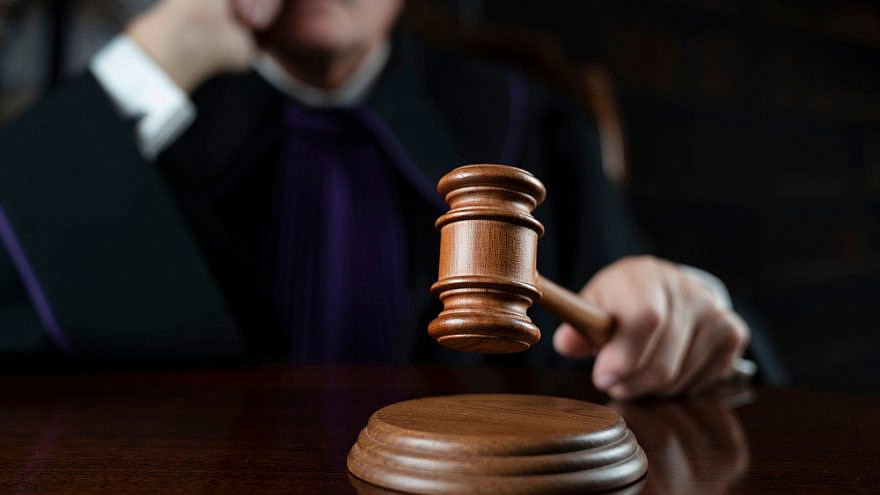Israel’s High Court of Justice sparked controversy on Monday with a landmark ruling on non-Orthodox conversion, evoking outrage on the right and accolades from the left.
Right-wing parties panned the decision ordering the state to recognize Reform and Conservative conversions as a move that undermines Israel’s Jewish character, while their left-wing counterparts praised it as a move promoting equality among all the denominations in Judaism.
Likud condemned the ruling, saying that “the High Court made a decision that endangers the Law of Return, which is a cornerstone of Israel as a Jewish and democratic state. Only a vote for Likud will ensure a stable right-wing government that will return sovereignty to the people and the Knesset.”
Yamina leader Naftali Bennett accused the High Court of “intervening in government decisions and forgetting its role.”
Aryeh Deri, head of the Sephardi ultra-Orthodox party, Shas, lambasted the ruling as “a fatal blow to Israel’s Jewish character and a complete destruction of the status quo in matter of religion and state that have existed for more than 70 years.”
The Shas leader said that the ruling underlines the court’s disconnect from the majority of the Israeli public, “who want to maintain the Jewish state and preserve Judaism according to traditions that go back thousands of years,” and further vowed to support legislation that will prevent the court from intervening in such matters in the future.
MK Yaakov Asher of the Ashkenazi haredi party United Torah Judaism, accused the High Court of intervening in the election campaign in favor of “a very specific party,” alluding to the center-left Yesh Atid.
Echoing the sentiment, Chief Rabbi David Lau said that “those who converted [to Judaism] through a Reform conversion and the likes are not Jews; no High Court or any other decision will change that.
Religious Zionist Party leader Bezalel Smotrich called the ruling “outrageous.”
“No one has given the High Court the authority to rule on matters pertaining to the very core of Israel’s character. It is acceptable to have disagreements and to debate [them], and make a decision as you do in a democracy. [The matter of conversions] will not be ruled on by 15 judges who trampled over the Knesset, the government, the people’s sovereignty and time and again undermine the state’s Jewish character,” he said.
Far-Right Otzma Yehudit Party leader Itamar Ben-Gvir said the ruling “undermines the Jewish identity of the State of Israel” and creates a “dangerous precedent” that could “erase the Jewish majority in the country and turn it into a state of all citizens.”
The Tzohar Modern-Orthodox Rabbinical Organization strongly criticized the decision, saying it will “impact the very Jewish future of the state.” It further blamed “power brokers” associated with the Chief Rabbinate for allowing this decision to go ahead.
Among those who spoke out in favor of the ruling was Opposition Leader Yair Lapid who said, “Israel must have equal rights for all streams of Judaism—Orthodox, Reform or Conservative. We all need to live here together with tolerance and mutual respect. A sane government will put an end to the situation whereby Israel is the only democracy in the world without freedom of religion for Jews.”
‘Jewish peoplehood, identity and pluralism’
Blue and White chief Benny Gantz commended the ruling, as well, and vowed that as long his party was in the Knesset and the government, it would make sure to preserve the ruling and the independence of the court.
Labor leader Merav Michaeli welcomed the court’s decision and said that her party would “continue to work towards a pluralistic and egalitarian society that recognizes all streams of Judaism.”
Also praising the ruling, Yisrael Beiteinu head Avigdor Lieberman said that his party would “continue to fight against religious coercion and will preserve the character of the State of Israel as a Jewish, Zionist and liberal state.”
Meretz leader Nitzan Horowitz said that haredi and religious-Zionist leaders “do not have a monopoly over Judaism” and praised the court’s decision as “an important step in the dismantling of the Orthodox monopoly over our lives.”
Fellow Meretz MK Tamar Zandberg said, “It is time for Israel to break free of the shackles of the rabbinate’s monopoly. Judaism has many varieties—Israeli is the home of all Jews.”
Rabbi Dr. Daniel Hartman, president of the Shalom Hartman Institute, whose mission statement is “to strengthen Jewish peoplehood, identity and pluralism,” praised the ruling as “the fulfillment of the vision of Zionism.”
“I sincerely hope that it heralds the beginning of a new discourse on religion and state and the relations between the various tribes within Judaism and within Israeli society,” he said.
The Ne’emanei Torah Va’Avodah religious-Zionist organization noted that the ruling would have no significant impact, as Reform and Conservative conversions are already recognized outside of Israel.
Masorti Movement head Rakefet Ginsberg praised the court’s decision, describing it as “just, understandable and clear. There is more than one way to be a Jew in Israel.”
Jewish People Policy Institute president and CEO Professor Yedidia Stern said that the court’s decision was “a necessary and obvious ruling for Israel as well as for the Jewish people. [In] the nation-state of the Jewish people, anyone who is willing to become a Jew, and convert by any recognized stream, Reform, Conservative or Orthodox, must be allowed to gain citizenship.”
Yori Yalon, Dan Lavie, Hanan Greenwood and Yair Altman contributed to this report, which first appeared in Israel Hayom.


























